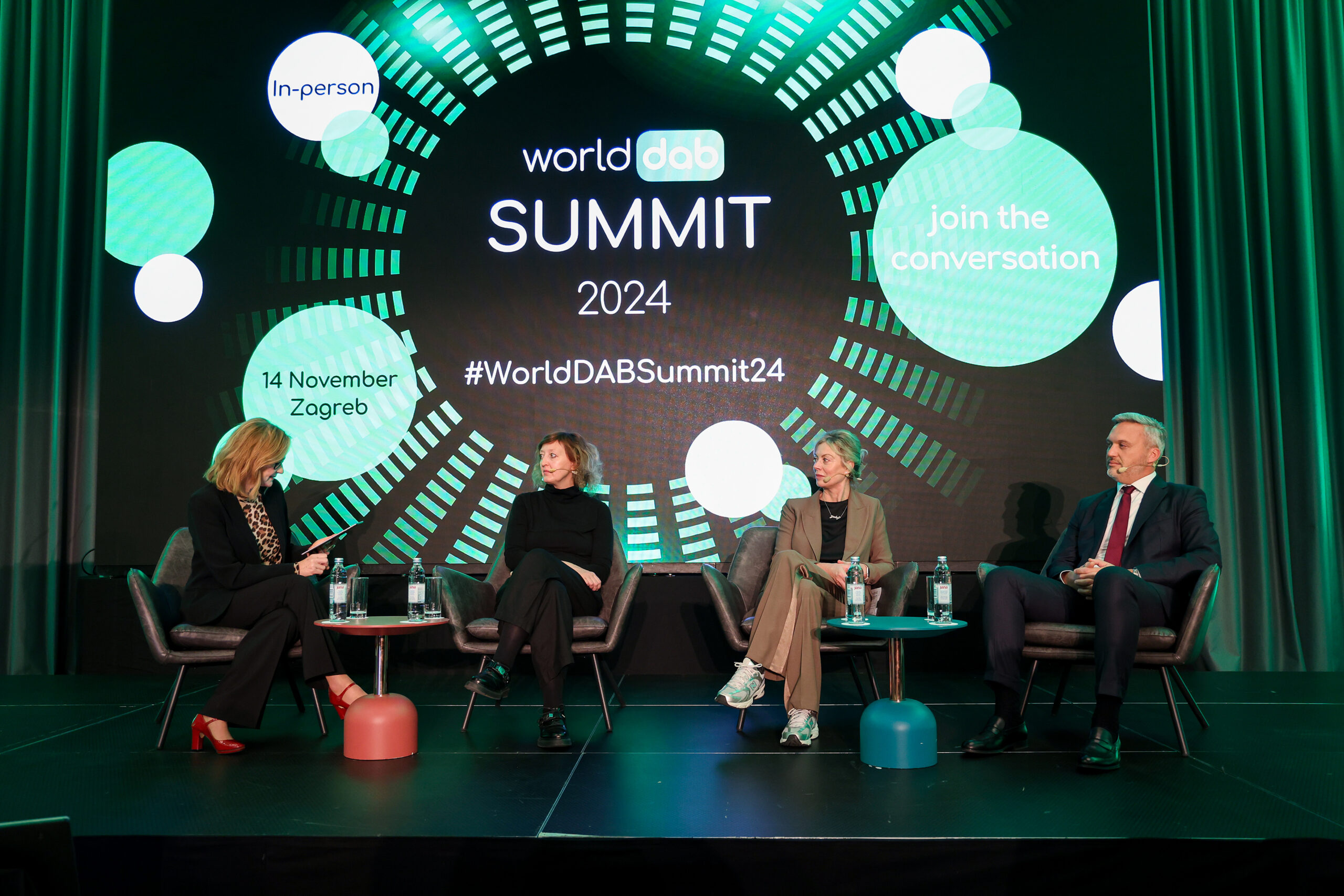Here’s what happened at the WorldDAB Summit 2024 in Croatia

WorldDAB Summit 2024 saw public and private broadcasters actively collaborate and engage in dialogue to ensure radio’s digital future.
It was hosted by Aradhna Tayal Leach, Managing Director of the UK Radio Academy, and Director of Radio TechCon.
WorldDAB President Jacqueline Bierhorst, joined by Edita Kudláčová, the EBU’s Head of Radio, and Luka Đurić, Vice President of the Association of European Radios (AER), celebrated the enduring strengths and benefits of broadcast radio.
Bierhorst stated that WorldDAB’s work with global organisations is unifying the broadcast radio ecosystem through initiatives such as its Working Groups and events.
She emphasised the importance of maintaining a balanced broadcast sector integrating traditional and digital elements, without relying solely on IP solutions. Complementing this, the EBU’s Connected Car Playbook was highlighted as a key initiative aligning with WorldDAB’s goals, providing critical guidelines for broadcast, apps, and voice in digital environments.
The Summit, held in Zagreb and attended by nearly 200 delegates, marked significant global advancements in digital radio. In her opening address, Bierhorst said, “Securing radio’s digital future is critical and fundamental for listeners, broadcasters, and society.”
Jasna Vaniček-Fila from Croatia’s Directorate for Media underscored the Ministry of Culture’s backing for digital radio, citing opportunities for innovation, and environmental benefits such as reduced power consumption.
“The Minister of Culture and Media supports the further development of digital radio, and the wide range of opportunities it offers,” she said. Meanwhile, Mate Botica from Croatian network operator OIV announced that nine new DAB+ transmitters had been brought into service since August, bringing coverage to 97%.
The event was held just six weeks before Switzerland’s public broadcaster, SRG SSR switches off its FM transmitters. Adriano Pitteri set out the rationale including cost savings, alongside the extensive work being done to publicise the change to listeners. Meanwhile, Dirk Schrödter, Minister of Digitisation of the State of Schleswig-Holstein, shared its plan to make the transition to DAB+ digital radio by 2031.
He described radio as “truly a wonderful medium,” but urged that linear radio must be transformed for the digital future. “With DAB+ we are creating more media diversity, which is extremely important in an era where deepfakes and fake news are on the rise.” he added.
At a time of flooding across Europe and other disasters around the world, Carsten Zorger from Digitalradio Büro Deutschland highlighted the development of new life-saving Automatic Safety Alerts via DAB+, and the successful “Warntag” [warning day] tests in Germany, which included the system for the first time.
The innovation in DAB+ digital radio technology aims to protect the public during emergencies by delivering reliable safety alerts without requiring an internet connection.
Elsewhere at the event, Javier Sánchez from Spain’s public broadcaster RTVE spoke about this year’s rapid rollout of DAB+. Since its launch in February, DAB+ services from RTVE can now be received in 13 cities across the country. On the 100th anniversary of radio in Spain, Sánchez revealed that Ràdio 4, the Catalonian radio station of RNE, was now broadcasting on DAB+ in Barcelona, becoming the first legal DAB+ station in Catalonia.
At the organisation’s General Assembly, held prior to the Summit, the WorldDAB Award for Outstanding Service was presented to Lindsay Cornell of the BBC and Chair of WorldDAB’s Technical Committee, for his work on the development of new ETSI standards for the Automatic Safety Alert system. The award noted that Cornell’s “technical expertise and exceptional project management and people skills have undoubtedly had a huge impact on the industry.”
Closing the event, it was announced that the next WorldDAB Automotive event will take place in Madrid, Spain, on 19 June 2025.
